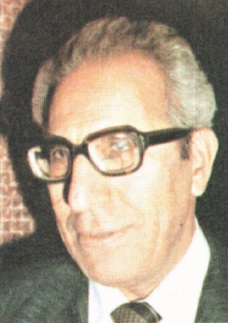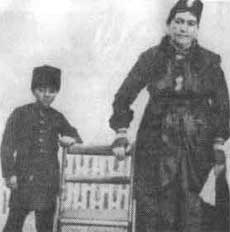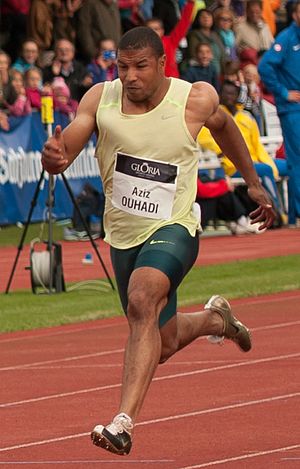Discover Your Roots
SIGN UPDiscover Your Roots
SIGN UPAziz is a male name of Arabic origin, meaning "Beloved" and "Powerful." It is derived from the Semitic root two-zayin, which signifies 'reputable, powerful, sublime.' In various Semitic languages and beyond, including Arabic, Hebrew, neo-Aramaic, Mandaic, and Maltese, as well as Berber, Caucasus, Iranian, and Turkic languages, Aziz is a common given name. In Islamic tradition, Al-ʿAzīz is one of the names of God, and ʿAzīz is used as a royal title in ancient Egypt. The name has historical and mythological significance, with references in ancient Levantine mythology and the Hebrew Bible. Aziz is popular in the Muslim world and is also used by non-Muslim communities in the Middle East, such as Jews, Assyrians, and Armenians. Notable individuals carrying the name Aziz include scientists, actors, athletes, musicians, and politicians.

Aziz Mirza, born on August 15, 1947, is a renowned Indian film director, producer, and screenwriter, celebrated for his contributions to Bollywood and Indian television. Hailing from a family deeply rooted in the Indian film industry, with his father being the esteemed scriptwriter Akhtar Mirza and his brother, the accomplished filmmaker Saeed Mirza. Aziz Mirza embarked on his career in 1985, co-founding the production company Iskra alongside his brother and director Kundan Shah. His directorial debut came with the 1989 television serial "Circus," featuring Ashutosh Gowariker and Shah Rukh Khan, followed by his foray into films with "Raju Ban Gaya Gentleman" (1992) and "Yes Boss" (1997), both starring Shah Rukh Khan and Juhi Chawla. In 1999, he established Dreamz Unlimited with Juhi Chawla and Shah Rukh Khan, producing their first film "Phir Bhi Dil Hai Hindustani" (2000). Mirza's directorial prowess shone through in "Chalte Chalte" (2003), the production house's first box office hit. Following a hiatus due to personal loss, he returned in 2007 with "Kismat Konnection" (2008), featuring Shahid Kapoor and Vidya Balan. Aziz Mirza's remarkable career continues to inspire and

Aziz Sejawal, also known as Sajawal or Sajaawal, is a prominent Indian film director renowned for his work in Bollywood. His impressive filmography includes collaborations with esteemed Bollywood actors such as Dharmendra, Mithun Chakraborty, Madhuri Dixit, Amrish Puri, Om Puri, Aditya Pancholi, Jackie Shroff, Juhi Chawla, Sanjay Dutt, Govinda, and Rani Mukerji. Known for infusing comedic elements into his films, Sejawal's works often delve into themes of injustice and corruption, offering audiences a blend of entertainment and societal commentary. Some of his notable films include "Ilaaka" (1989), "Baap Numbri Beta Dus Numbri" (1990), "Mafia" (1996), and "Chalo Ishq Ladaaye" (2002). With a successful career in the Indian film industry, Aziz Sejawal remains a respected figure in Bollywood. For more information about his work, his IMDb page provides further insight into his contributions to cinema.

Aziz Daneshrad, also known as Gabay and Kiyai, was an influential Iranian Jewish political activist who made significant contributions to his community. Born in 1920 in Golpayegan, Isfahan Province, he pursued a bachelor's degree in electrical engineering from the University of Tehran before embarking on a career as a civil servant. Daneshrad was a vocal proponent of left-wing politics and was associated with the Tudeh Party of Iran during the Pahlavi dynasty's rule. His activism led to imprisonment in the 1960s and 1970s. In 1978, he co-founded the Association of Jewish Iranian Intellectuals, a revolutionary organization challenging the old guard leadership of the Jewish community. Following the Iranian Revolution, Daneshrad assumed the role of interim chairman of the Tehran Jewish Association and later represented religious minorities in the Assembly for the Final Review of the Constitution. Throughout his life, he championed ethnoreligious identity and was known for his opposition to the inclusion of the Guardianship of the Islamic Jurists in the constitution. Daneshrad was married to Aghdas Kiaee, with whom he had three sons and two daughters. His dedication to his community and his contributions to the political landscape led to numerous accolades, including the Prime Medal of His Royal Highness and the Order of the Crown (Second Class). Aziz Daneshrad's legacy continues to inspire and influence generations.

Aziz al-Soltan (1879–1940) was a prominent figure in the court of Naser al-Din Shah Qajar of Iran. He gained favor with the Shah due to his familial connections and quickly rose to prominence as one of the Shah's favorites. Known as Malijak, his close relationship with the Shah and the lavish spending on him drew significant negative attention and led to his unpopularity among certain circles at court. Aziz al-Soltan's story is a fascinating glimpse into the inner workings of the Iranian royal court during the late 19th and early 20th centuries. His influence and the controversies surrounding him make him a figure of historical significance in the court of Naser al-Din Shah. For further insights into his life and the dynamics of the Qajar court, Piotr Bachtin's work "ʿAzīz al-Sulṭān, Ghulām ʿAlī Khān" offers valuable perspectives.

Aziz Ouhadi, born on July 24, 1984, in Khemisset, is a notable Moroccan track and field athlete renowned for his prowess in the 100 meters and 200 meters races. He holds the Moroccan national record for the 100 meters with a personal best of 10.09 seconds. Ouhadi's impressive skills and dedication led him to represent Morocco in the 2012 London Olympics and the 2009 and 2011 World Championships, as well as the 2012 World Indoor Championships. Throughout his career, he has achieved remarkable feats, including securing medals at prestigious events like the Jeux de la Francophonie and the Military World Games.In 2017, Ouhadi faced a setback when he tested positive for SARMs, resulting in a four-year ban from competition until May 19, 2021. Despite this, his legacy as a talented sprinter and his contributions to Moroccan athletics remain noteworthy. Ouhadi's journey is documented in various platforms, including World Athletics, Olympedia, Olympics.com, and the Comité National Olympique Marocain (in French). His remarkable achievements and dedication continue to inspire aspiring athletes and track and field enthusiasts worldwide.
All images displayed on this page are sourced from Wikipedia or Wikimedia Commons.We use these images under their respective Creative Commons or public domain licenses. Wherever applicable, author attributions and license information are provided. If you believe an image is used incorrectly or outside its license terms, please contact us so that we can review and correct the issue.